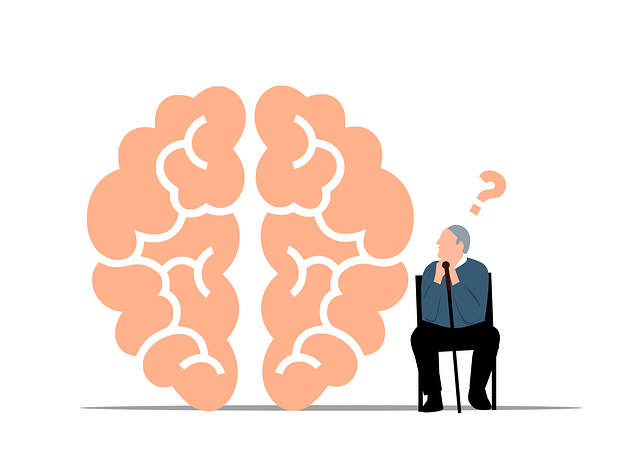Mental wellness apps, like those offered by Parker Christian Counseling Therapy, revolutionize access to care with personalized, evidence-based tools for managing emotions and promoting positive thinking. These digital solutions empower users worldwide to discreetly improve mental health through convenient and effective support. An effective app blends interactive features like journaling exercises and professional guidance, prioritizes intuitive design, and includes mental health awareness content. Integrated risk management planning allows professionals to monitor client well-being between sessions. As the popularity of these apps grows, ethical considerations and user privacy become paramount, requiring transparent consent mechanisms, clear data policies, and interfaces that encourage open dialogue and emotional intelligence.
In today’s fast-paced world, mental wellness apps are emerging as indispensable tools, offering accessible support for individuals seeking guidance. This article explores the growing importance of digital solutions in addressing mental health concerns, particularly within the context of Parker Christian Counseling Therapy. We delve into the key considerations behind designing effective apps, focusing on user experience and essential features. Additionally, we discuss ethical implications and the critical aspect of privacy protection in this burgeoning field.
- Understanding Mental Health and the Need for Digital Solutions
- Designing an Effective App: Features and User Experience for Wellness
- Ethical Considerations and Ensuring Privacy in Parker Christian Counseling Therapy Apps
Understanding Mental Health and the Need for Digital Solutions

Mental health is a crucial aspect of overall wellness, encompassing our emotional, psychological, and social well-being. It affects how we think, feel, and act in daily life, impacting our ability to cope with stress, make choices, and relate to others. Unfortunately, mental illness is a prevalent challenge worldwide, affecting individuals across all demographics. The demand for accessible and effective treatment options has never been higher, especially considering the growing acceptance of digital solutions in modern healthcare.
In light of this, apps focused on mental wellness have gained significant traction. These digital tools offer convenient and often personalized approaches to supporting users’ emotional healing processes. Parker Christian Counseling Therapy, a leading provider in the field, recognizes the potential of technology to reach a broader audience with evidence-based interventions. By integrating features for mood management and promoting positive thinking, these apps can empower individuals to take charge of their mental health discreetly and effectively, ensuring better support for those navigating various emotional challenges.
Designing an Effective App: Features and User Experience for Wellness

Designing an effective mental wellness app requires a thoughtful blend of features and user experience to promote well-being. Incorporate interactive elements such as Mental Wellness Journaling Exercises that encourage self-reflection, along with Guidance from professionals like those at Parker Christian Counseling Therapy. This personalized approach fosters a safe space for users to track their emotions and progress.
Prioritize intuitive navigation and accessible design to cater to diverse user needs. Include features for Mental Health Awareness, such as informative articles or tips, to educate users on various aspects of mental wellness. Additionally, integrate tools for Risk Management Planning, allowing mental health professionals to monitor client well-being between sessions and provide timely interventions, ensuring a holistic and supportive experience.
Ethical Considerations and Ensuring Privacy in Parker Christian Counseling Therapy Apps

As the popularity of Parker Christian Counseling Therapy apps grows, ethical considerations and privacy become paramount. These digital tools offer immense benefits in providing accessible mental health services, but they also pose unique challenges. Developers must ensure that user data is protected, adhering to strict privacy regulations such as HIPAA (Health Insurance Portability and Accountability Act) for sensitive information exchange. Transparent consent mechanisms and clear data usage policies are essential to maintaining trust between users and the app.
Moreover, ethical design includes implementing effective communication strategies that respect user autonomy and promote emotional intelligence. This involves creating interfaces that foster open dialogue, encouraging self-reflection through personalized feedback, and providing resources for users to understand their emotions. Additionally, risk assessment for mental health professionals is crucial, ensuring they are equipped to handle potential crises within the app environment while maintaining confidentiality and ethical conduct.
The development of mental wellness apps, particularly those aligned with Parker Christian Counseling Therapy principles, presents a promising avenue for improving access to care. By combining intuitive design, ethical considerations, and a focus on user experience, these applications can empower individuals to take control of their mental health. As technology continues to evolve, it is imperative that we leverage its power responsibly, ensuring privacy and delivering effective solutions that cater to the diverse needs of users seeking Parker Christian Counseling Therapy support.














